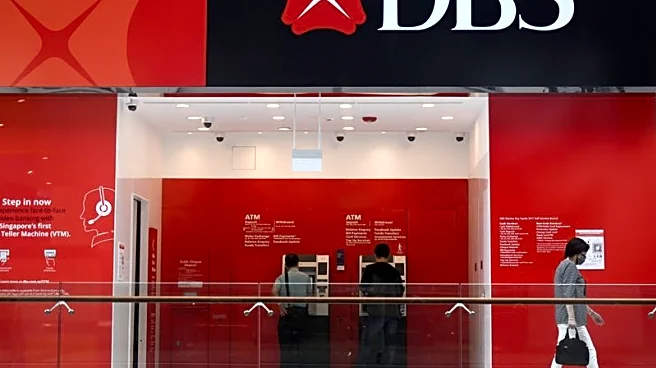What is the story about?
What's Happening?
Marvell Technology's stock experienced a significant drop following the release of its second-quarter results, which, despite being positive, were overshadowed by less optimistic third-quarter guidance. The company reported adjusted earnings of 67 cents per share, slightly surpassing Wall Street's forecast of 66 cents, and revenue of $2.006 billion, just below the consensus estimate of $2.009 billion. Marvell's growth is driven by strong AI demand for its custom silicon and electro-optics products, alongside recovery in enterprise networking and carrier infrastructure markets. However, analysts have expressed concerns over near-term headwinds, leading to trimmed price forecasts. Rosenblatt Securities highlighted mixed results due to data center ASIC shipment adjustments, while JP Morgan noted that stronger consumer demand offset softer data center and carrier sales.
Why It's Important?
The decline in Marvell's stock reflects broader investor concerns about the semiconductor industry's growth prospects, particularly in the context of AI and data center markets. The company's reliance on AI-driven products and enterprise networking recovery underscores the importance of these sectors in its growth strategy. Analysts' cautious outlook suggests potential volatility in Marvell's stock, impacting investor sentiment and market dynamics. The divestiture of Marvell's Automotive Ethernet business and adjustments in data center shipments are key factors influencing revenue projections, highlighting the challenges in maintaining growth momentum amid shifting market conditions.
What's Next?
Marvell's future performance will likely hinge on its ability to capitalize on AI demand and diversify its revenue streams through upcoming ASICs and design opportunities. Analysts anticipate uneven custom ASIC shipments, with potential reacceleration in 2026, and a sequential increase in carrier and enterprise networking sales. Investors will be closely monitoring Marvell's strategic moves and market responses to gauge its long-term viability and growth potential. The company's efforts to reduce customer concentration and expand its product pipeline will be critical in navigating the competitive semiconductor landscape.
















